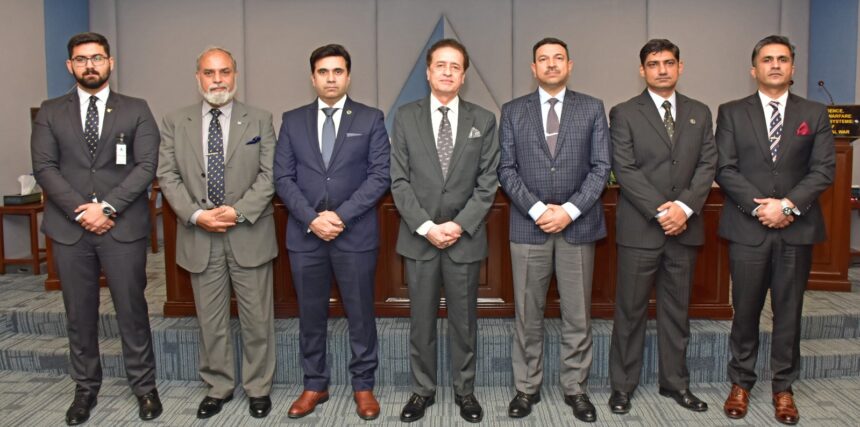The Centre for Aerospace and Security Studies (CASS), Lahore, recently convened a seminar focusing on the profound implications of Artificial Intelligence (AI), electronic and cyber warfare, and unmanned aerial systems for the future of aerial warfare. The event brought together leading academics, military experts, and scholars to explore how next-generation technologies are reshaping strategic capabilities and operational doctrines, particularly for the Pakistan Air Force.
Opening the seminar, Air Commodore (Retd) Dr Naveed Khaliq Ansaree, Director of CASS Lahore, highlighted that sweeping advancements in AI and other emerging domains represent a seismic shift in the nature of warfare. He underscored the critical importance of these technologies for the operational readiness and broader strategic posture of the Pakistan Air Force.
Delivering the keynote address, Professor Dr Yasser Ayaz, Chairman of the National Centre of Artificial Intelligence (NCAI), described AI as a transformative force and the most significant revolution in military affairs since gunpowder and nuclear weapons. He stated that air forces, in particular, stand to benefit from AI, which can refine critical processes such as the Observe, Orient, Decide, and Act (OODA) loop and bolster the capabilities of command centres. Citing the United States’ Joint All-Domain Command and Control (JADC2) system, Dr Ayaz called for the adoption of a unified, cross-domain strategy in applying AI across armed forces.
Group Captain Farhan Ahmed, an expert in cyber operations, observed that the battlefield has evolved from isolated platform-based confrontations to complex systems-versus-systems engagements, with cyber capabilities emerging as pivotal enablers of network-centric warfare. He emphasized the necessity of integrating sensors, weapon platforms, and decision-makers to enhance modern military operations and revealed that the Pakistan Air Force has already brought around 25,000 assets under comprehensive cybersecurity frameworks. In his discussion of Operation Zarb-e-Karar, he stated that the PAF cyber force targeted 100 adversary organizations using 4,400 ICT elements, achieving a comprehensive ICT destruction ratio of 67–0. This operation resulted in notable physical impacts, with adversarial energy, transportation, and communication sectors being disrupted.
Air Commodore (Retd) Raza Haider, Director CASS Islamabad, observed that fifth-generation warfare commands significant economic and military advantages for the state that leads in technological innovation. He warned that a “tech-polar” world order is emerging, with Pakistan, Türkiye, and Iran striving to attain technological sovereignty, particularly in the areas of drone technology and electronic warfare, to reduce strategic dependencies.
In his concluding remarks, Air Marshal Asim Suleiman, President of CASS Lahore, noted that the paradigm of modern conflict has shifted from visible destruction towards silent disruption. He highlighted three priorities for national security: achieving technological sovereignty through indigenous systems, ensuring cross-domain integration for a synchronized response, and maintaining the agility needed to adapt in real time. Air Marshal Suleiman cited Operation Zarb-e-Karar as a demonstration of Pakistan’s resolve to secure the digital domain through integrated multi-domain operations. Spearheaded by Air Chief Marshal Zaheer Ahmed Babar Sidhu, the operation featured the fusion of AI, cyber and electronic warfare, and unmanned aerial platforms, resulting in precision UAV strikes, strategic disruption of enemy radars, and cyber-attacks that compromised the Indian Air Force’s air operations. These efforts, he said, underscored a new paradigm where systems integration, resilience, and rapid decision-making eclipse traditional firepower in defining victory.
The seminar’s interactive session underlined the crucial requirement for tri-service cooperation to fully harness the potential of AI, cyber-electronic warfare, and unmanned systems, ensuring that Pakistan’s armed forces remain at the cutting edge of future multi-domain operations.











